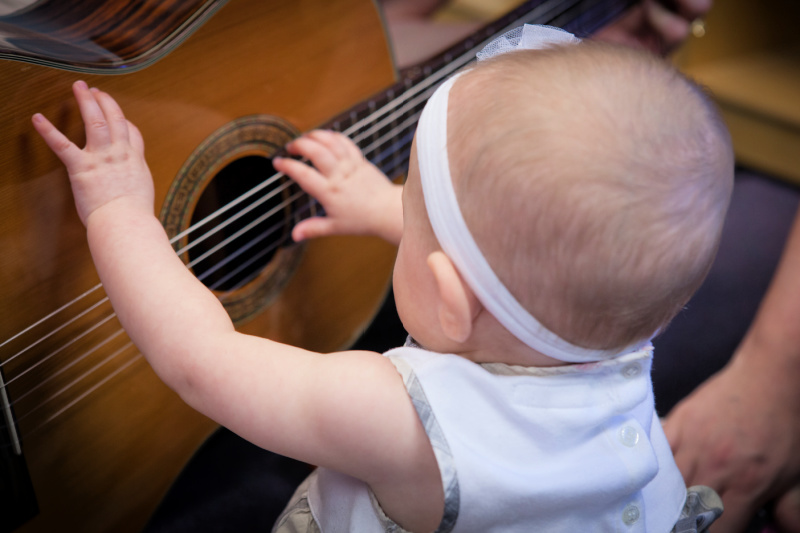As clinicians, adding novelty to our repertoire is key to promoting a healthy and engaging therapeutic relationship with our clients. One way to do this, that may not always be thought of, is through using books! For clinicians, caregivers, and teachers alike, books that can be sung are a great way to practice reading, reinforce learning, and embed other goal areas into one story.
Singable Books
Head to Toe by Eric Carle
by Eric Carle
This book doesn’t have a specific melody, but this is the perfect opportunity to flex your songwriting skills! “Head to Toe” is fantastic for animal identification, body awareness, and so easy to incorporate movement into. Did someone say it’s time to stomp like an elephant? Or slither like alligator?
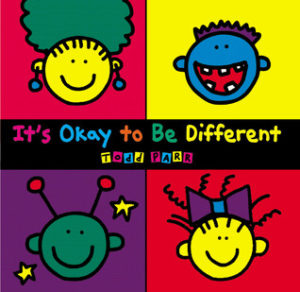 It’s Okay To Be Different by Todd Parr
It’s Okay To Be Different by Todd Parr
Parr’s books are classics in the world of early childhood literature. The bright color scheme and childlike illustrations are just some of the benefits of opening up a Todd Parr book. This is another book without a fixed melody, but again, gives you the opportunity to create a memorable melody with your client, child, or student! Within each page, you can embed different objectives or experiences. Let’s count how many teeth are in his mouth! What animal do you see on the page? What planet is this? Parr’s books are visually stimulating and inclusive to everyone.
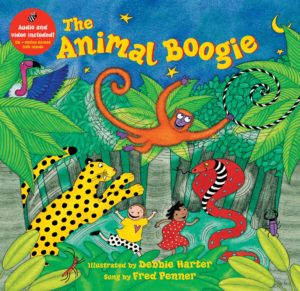
The Animal Boogie by Debbie Harter
“The Animal Boogie” is a book with a pre-established melody (yay!). What’s cool about this book is that you can incorporate the movements of each animal into a little dance party on each page! With a pre-established melody, you can spend more time on reading fluency, since the structure is already created for you. Plus, it’s a blast to sing boogie oogie oogie during each chorus!
Here are a few more books based off popular songs!
Good Vibrations: A Children’s Picture Book – The Beach Boys
Octopus’s Garden – Ringo Starr of The Beatles
Respect: A Children’s Picture Book – Otis Redding (Did you know he wrote the original song?)
Happy! – Pharrell Williams
Every Little Thing – Bob Marley
Sweet Child o’ Mine – Guns N’ Roses
Happy singing and reading!

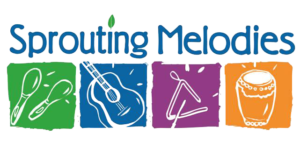
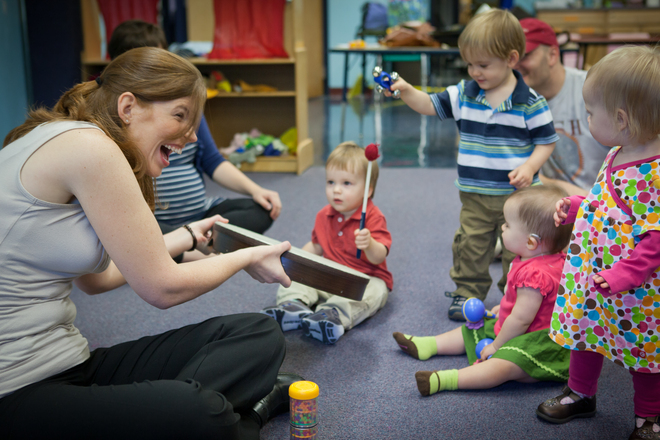
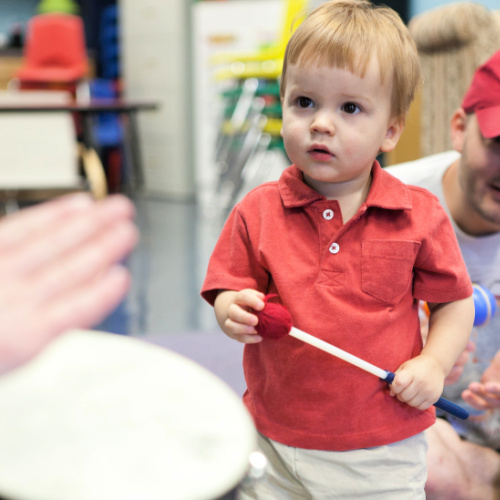


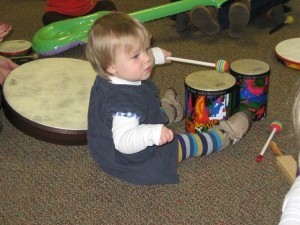 I said it again this month at the Melrose Public Library program during a music therapy session.
I said it again this month at the Melrose Public Library program during a music therapy session.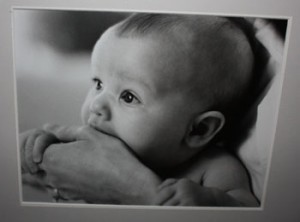 It took me years of experience and learning about early childhood development and music, but now I know that if I’m still getting that deer in the headlights look, I need to do the song again, and again, and again, until the young children who are participating in my music groups are no longer in panic mode. Once their facial expressions relax and they begin to look at me with the expression that says, “Oh, okay…tell me more,” then I know we are ready for more music making. I assure you, as adults we will tire of a song much more quickly than our babies will. But our babies are not bored!
It took me years of experience and learning about early childhood development and music, but now I know that if I’m still getting that deer in the headlights look, I need to do the song again, and again, and again, until the young children who are participating in my music groups are no longer in panic mode. Once their facial expressions relax and they begin to look at me with the expression that says, “Oh, okay…tell me more,” then I know we are ready for more music making. I assure you, as adults we will tire of a song much more quickly than our babies will. But our babies are not bored!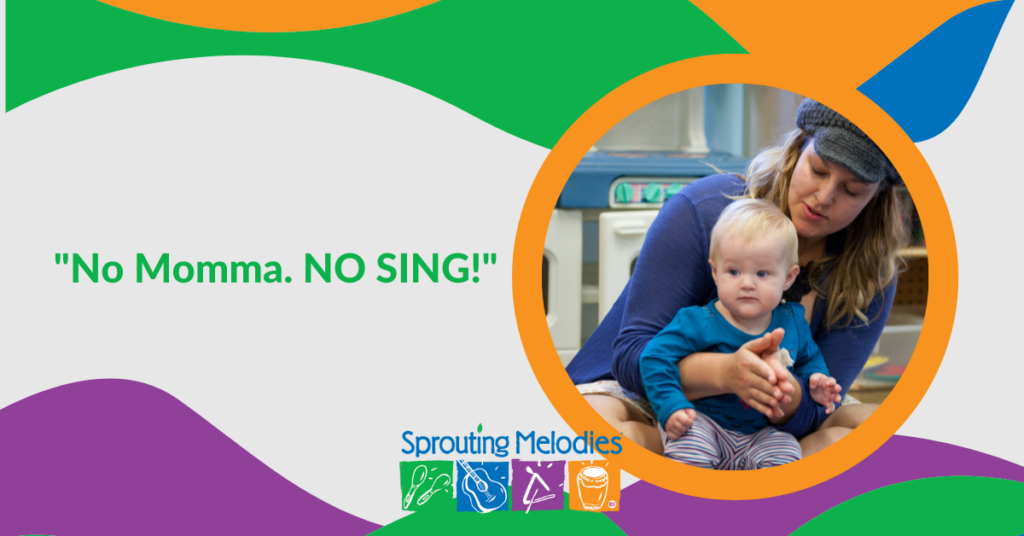
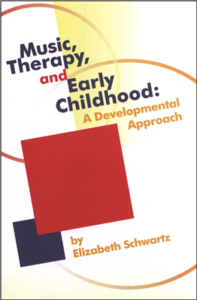 After this stage of development will come a new area for growth in which the child will learn how to engage in music making with others and will be ready to participate in group music making.
After this stage of development will come a new area for growth in which the child will learn how to engage in music making with others and will be ready to participate in group music making.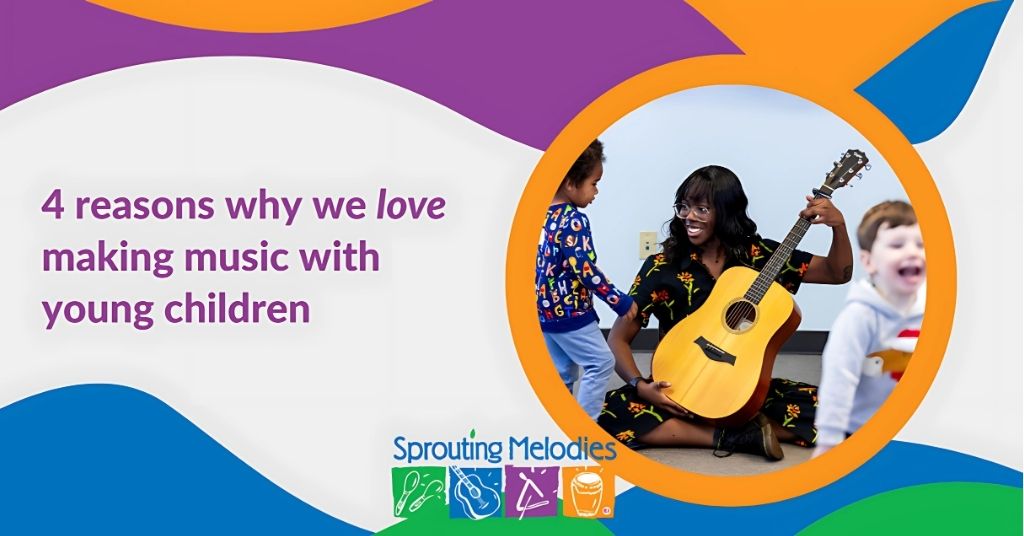
 There is nothing like sharing in the simplicity of music making with a child. As a newborn, music is a profound experience that causes the baby to stop and look around, waiting and watching. As children age, they become more and more aware of the environment and still attend to music as if it is a huge presence in the room. I learn a lot from their experience of music.
There is nothing like sharing in the simplicity of music making with a child. As a newborn, music is a profound experience that causes the baby to stop and look around, waiting and watching. As children age, they become more and more aware of the environment and still attend to music as if it is a huge presence in the room. I learn a lot from their experience of music.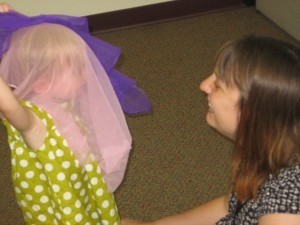 There is a closeness in making music with your child that goes beyond a song. It is our common understanding that songs and lullabies create intimate shared moments for babies and caregivers. With repetition, those shared musical moments create meaningful bonds.
There is a closeness in making music with your child that goes beyond a song. It is our common understanding that songs and lullabies create intimate shared moments for babies and caregivers. With repetition, those shared musical moments create meaningful bonds.